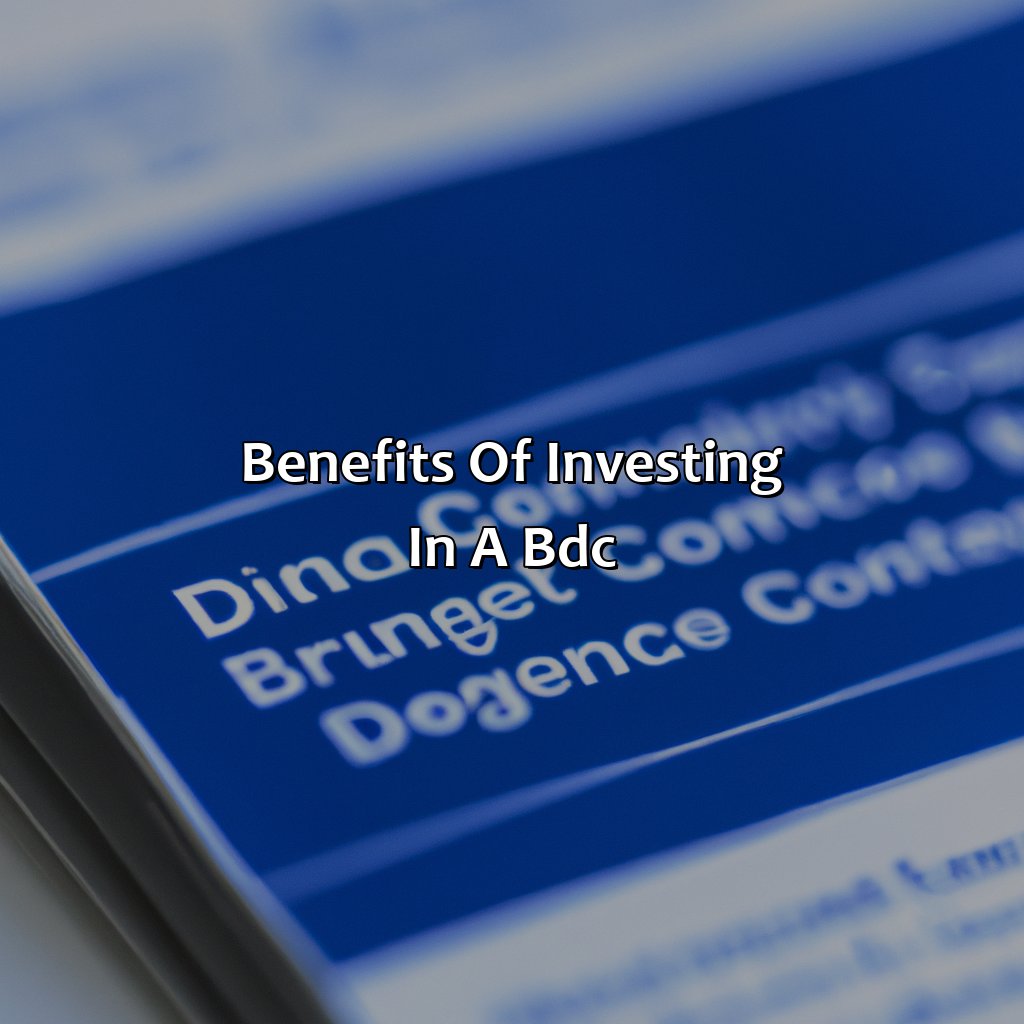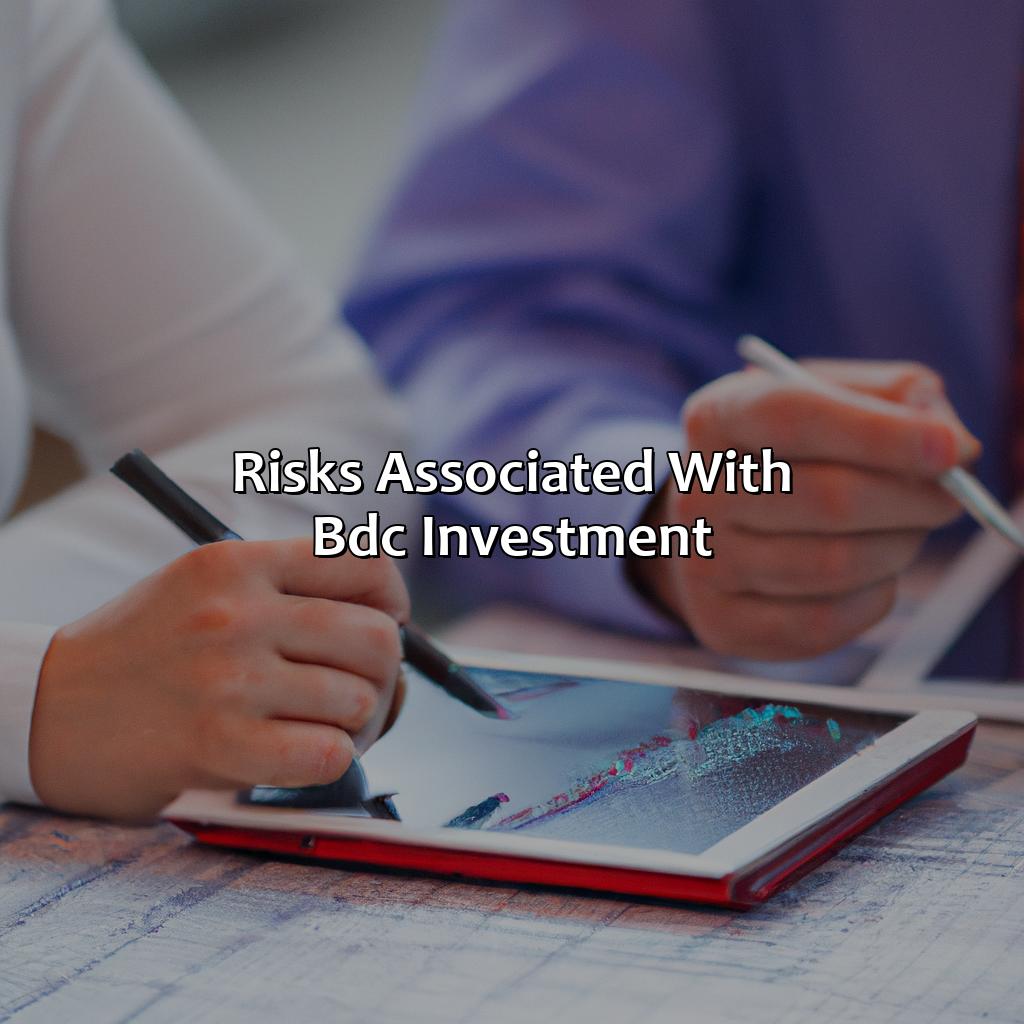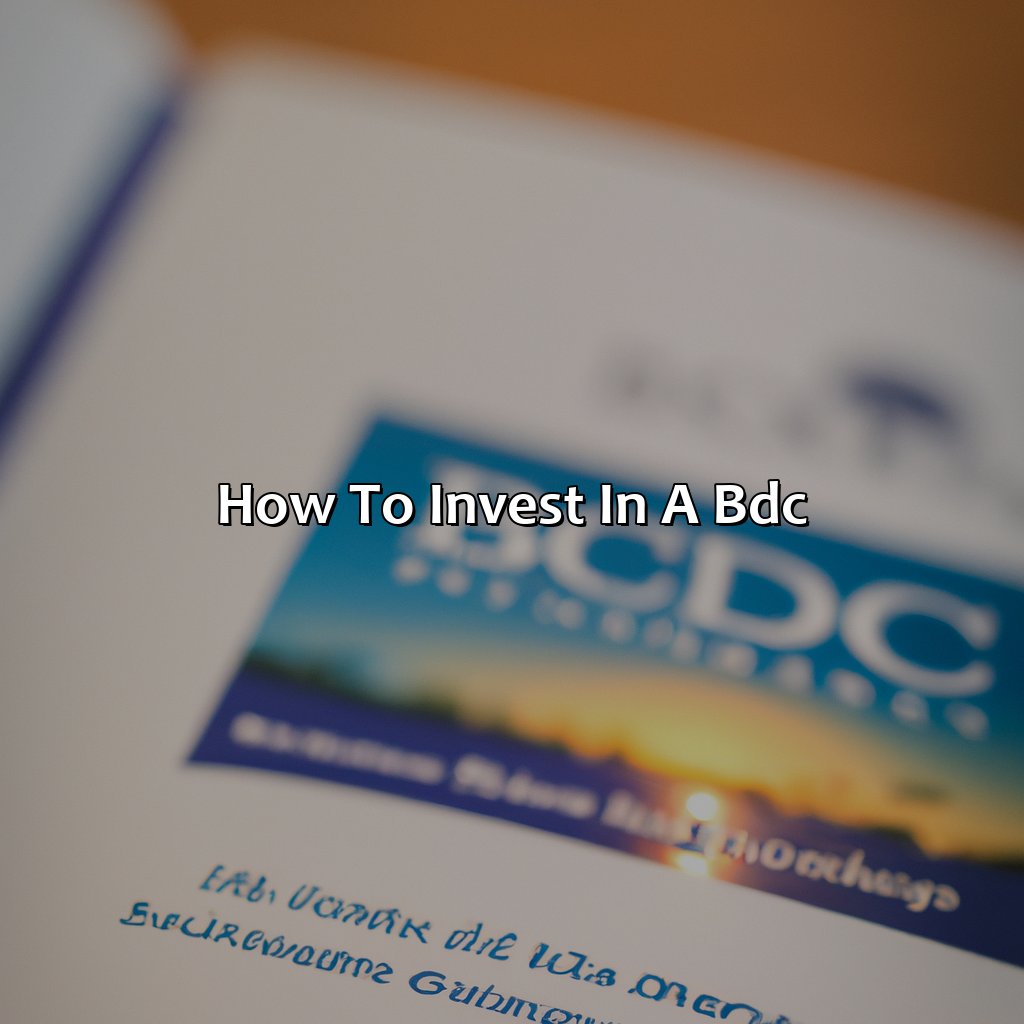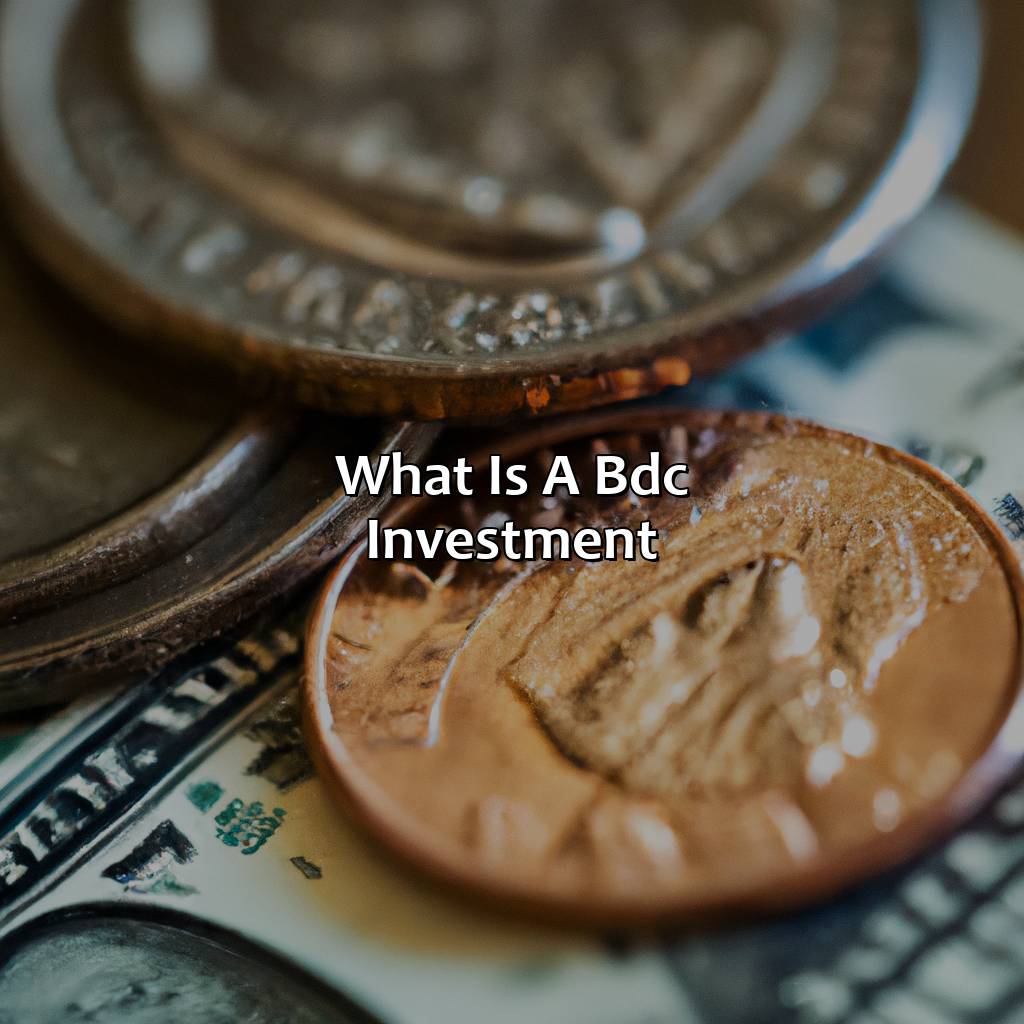What Is A Bdc Investment?
Key Takeaway:
- BDC investment is a popular way to invest in small and medium-sized businesses, providing investors with high yields and diversification opportunities.
- BDC stands for Business Development Company, which is a type of closed-end investment company that invests in and provides financing to small and medium-sized businesses.
- The benefits of investing in a BDC include high dividends, access to a diversified portfolio of companies, and exposure to private equity-like returns. However, risks associated with BDC investment include leverage risk, interest rate risk, and business cycle risk.
You may have heard the term ‘BDC investment’, but do you know what it entails? BDC investments provide an opportunity to gain access to high-yield income and achieve diversification in your portfolio, making them an attractive choice for many investors. Let’s take a closer look at what BDC investments are.
What is a BDC?
BDCs (business development companies) are essentially closed-end investment firms that invest primarily in privately-held companies. They are regulated investment firms that collect funds from individual and institutional investors, then deploy them into various private companies. BDCs typically offer higher yields than other investment options due to their nature of investing. Moreover, they invest a significant portion of their portfolio in high-yield debt, which has higher risk but brings about high rewards. BDCs provide individuals with access to private market investments that would otherwise be difficult to acquire.
BDCs are subject to SEC regulations and are required to distribute at least 90% of their taxable income to investors. This means that most BDCs pay dividends to shareholders, providing investors with a relatively stable source of income. Typically, BDCs are attractive to investors with a high risk tolerance who are looking for alternatives to traditional investment vehicles.
One example of a successful BDC investment is the company called Blackstone/GSO Capital Solutions. In 2014, Blackstone/GSO Capital Solutions invested in a company that specialized in the manufacture of hydraulic fracturing equipment for the oil and gas industry. Through this investment, the company expanded rapidly and was eventually acquired by a larger player in the industry, leading to significant returns for its investors. This success story illustrates how BDC investments can provide individuals with unique opportunities for growth and profit.

Image credits: retiregenz.com by Harry Duncun
Benefits of investing in a BDC
Investing in a Business Development Company (BDC) offers various benefits to investors. BDCs invest in various private companies and provide support for their growth by offering loans, equity investments, and management assistance. These benefits of investing in a BDC are as follows:
- Stable Income: BDCs offer stable income in the form of dividends to investors.
- Diversification: Investing in multiple private companies through a BDC provides diversification in investments, which reduces portfolio risk.
- Regulation: BDCs are regulated by the SEC, which provides transparency and accountability to investors.
- Access to Private Equity: BDCs provide access to private equity investments, which are otherwise not available to retail investors.
- Tax Efficiency: BDCs are structured as pass-through entities, which means that they are not subject to corporate taxes. This results in higher income for investors.
Moreover, BDCs offer unique investment opportunities that are not commonly found in other investment options. These opportunities can provide investors with high returns on their investment, though at a higher level of risk. Investing in a BDC requires a thorough understanding of the risks and rewards associated with this investment. Therefore, if you are an investor seeking diversification, steady income, and access to private equity, investing in a BDC can be a suitable option. Don’t miss out on the potential benefits that BDC investments can offer.

Image credits: retiregenz.com by Adam Jones
Risks associated with BDC investment
BDC Investment: Managing Intensifying Risks
BDC investment carries inherent risks that escalate with economic and political uncertainty. These risks include credit, management, liquidity, market, and interest rate risks, and a dearth of regulatory safeguards. These risks cumulatively present a substantial threat to investment portfolios and require careful consideration to ensure a profitable return on investment.
Investors looking to navigate the intensifying risks should undertake rigorous due diligence to assess the investor’s financial and operational strengths. This helps to identify the potential for credit losses, liquidity risks, operational risks, and other factors that may pose a challenge to the effective management of the BDC.
To mitigate these risks, investors should consider diversifying their investment portfolios and reducing exposure to any individual BDC. Additionally, investors should seek expert advice from investment professionals with a proven track record in managing BDC investments.
Pro Tip: Stay updated on economic and political events, and regularly review BDC investment portfolios to ensure informed investment decisions.

Image credits: retiregenz.com by David Arnold
How to invest in a BDC
Investing in a BDC – A Semantic NLP Guide
BDCs or Business Development Companies are specialized investment vehicles that offer a unique way to access private company investments. If you are curious about investing in a BDC, here is a step-by-step guide to get you started:
- Understand the Basics: Before delving deeper, familiarize yourself with the concept of BDCs, their investment strategy, and portfolio holdings. Then, identify the BDC you wish to invest in based on your risk tolerance, investment objectives, and overall portfolio strategy.
- Choose a Brokerage: BDCs are often traded on national securities exchanges, and investing in them requires a brokerage account. Select a brokerage firm that suits your investment needs, offers access to BDCs investments, and provides various trading tools.
- Make the Investment: Once you have selected your preferred BDC and brokerage, invest your desired amount of money by purchasing shares of the BDC. Avoid making impulsive decisions and only invest what you can afford to lose.
It is worthy to note that investing in BDCs may carry certain risks, including fluctuations in the market value of the investments, which could lead to significant losses. Therefore, it is essential to educate yourself thoroughly on the BDC and market trends before investing.

Image credits: retiregenz.com by Adam Duncun
Some Facts About BDC Investment:
- ✅ A BDC (Business Development Company) is a type of public investment firm that invests in small and medium-sized businesses. (Source: Investopedia)
- ✅ BDCs offer investors the opportunity to invest in private companies that would otherwise be difficult to access. (Source: Forbes)
- ✅ BDCs are required by law to distribute at least 90% of their taxable income to shareholders in the form of dividends. (Source: U.S. Securities and Exchange Commission)
- ✅ BDCs can provide diversification benefits to an investment portfolio due to their exposure to different industries and types of businesses. (Source: The Motley Fool)
- ✅ BDCs are regulated by the SEC and must adhere to strict rules and regulations to protect investors. (Source: National Law Review)
FAQs about What Is A Bdc Investment?
What is a BDC investment?
A BDC investment is an investment in a Business Development Company. These companies are designed to invest in and lend to small and mid-sized businesses. BDCs are regulated by the Securities and Exchange Commission (SEC) and typically offer high dividend yields to their investors.
How do BDCs work?
BDCs raise money from investors and use that capital to invest in small and mid-sized businesses. They can invest in both public and private companies and typically take an equity stake in the businesses they invest in. BDCs also provide loans to these companies, which can be senior or subordinated debt.
How are BDCs different than other types of investments?
BDCs are different from other types of investments in that they primarily invest in small and mid-sized companies that do not have access to traditional financing from banks or public markets. BDCs can provide much-needed capital to these companies in the form of both equity and debt investments, and they often focus on industries and sectors that are underserved by other lenders or investors.
Who are BDC investments suitable for?
BDC investments can be suitable for investors who are looking for high dividend yields and exposure to small and mid-sized businesses. BDCs can provide a way to invest in these companies without having to directly invest in individual stocks or bonds. However, like any investment, BDCs come with risks, so investors should carefully consider their own investment goals and risk tolerance before investing in a BDC.
What are the risks of investing in BDCs?
BDCs come with a number of risks, including the risk of default on the loans they provide to small and mid-sized businesses, the risk of changes in interest rates and capital markets, and the risk of changes in regulatory and tax environments. Additionally, BDCs can be illiquid investments, as they are not traded on public exchanges and may have limited liquidity options.
How can I invest in BDCs?
Investors can invest in BDCs through brokerage accounts, mutual funds, or exchange-traded funds (ETFs) that hold BDCs. Some BDCs also offer direct investment options for individual investors. Before investing, investors should carefully read the prospectus and do their own due diligence on the BDC company they are considering investing in.


